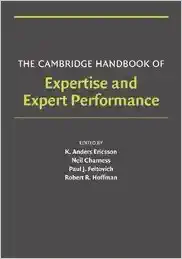Many of you probably have already adopted the view that the “near-word” (or maybe its “virtual word”) “OK” is vastly overused and misused repeatedly. It’s used sort of like the terms “amazing” and “awesome.” (As in, “You got a C- on this test? Amazing! Quite remarkable!” [Assuming that this is being said to a child who is not handicapped in some way.]) The linguistic corruption or semantic ruination is caused by a combination of over frequency of use and no real understanding of the special meanings of these terms. Amazingly enough, the phrase “awe struck” does not seem to have suffered the same degradation. In addition, there is no “awesoming,” “He, having been awesomed, tried to see her again. The same is true for anything of the form “She awesomed me.”
There is no such thing as a lawyer “malpracticing” his client. “Malpractice” is not a verb, period!
“It would be amazing if Obama’s approval rating ever rose as high as 70% after the computer errors and his false assertions that no one happy with their current health insurance policy would lose it, assuming that the insured(s) had not changed after the “grand-fathered-in” date.” [I hope I’ve got that right.]
If a political strategist caused this to happen, she would be awesome, and should be hired forth by anyone needing that kind of assistance.”
Now for “OK”– a slightly but instructive burlesque:
“I understand that you are upset that, right in front of you, I brutally murdered the rest of your family–good people, all of them. Are you OK?” How are you doing?” “Keep in mind, I understand your pain. OK?”
Or consider this one, some weaker variations of which might actually occur:
“It’s true, my dear husband, I have been unfaithful to you repeatedly for a long time, sometimes with as many as 3 lovers at once. But you must understand, my dear, I’m actually gay, bisexual, a lover of very special dogs, and a secretive transsexual ever since we married. OK? Of course, I’ve concealed all this from you for years, and I’ve done an OK job at it, though I haven’t from our children or your mother. OK?
“I didn’t have to disclose it to your Daddy, since we have been lovers from long before we married. We met in all sorts of places: closets, back seats of various cars, his office, your office, and even in the middle of the night at OK nearly clean “johns” in various parks. In addition, you were never any good at sex anyway–but even OK, really. All your girlfriends going way far back as anyone can remember unanimously agreed on this. OK? Are you doing OK? In any case, I’ll see you in court, only if it has to be. You’ll be OK. We’ll all be OK. I and the kids all agree on this. . . . Oh god! Is that pistol for duels in your hand? I don’t deserve this! OK? Good thing you don’t really know how to use it, and you’ve said for years that that was OK with you. Besides, it’s not loaded. OK! Thank God. Still, I know my love, that if I’m wrong and you use it and if the unlikely happens and you actually manage to fire well enough to hit me and if you go to prison, you’ll be OK. Maybe, you might kill me, that will be OK too.”
Is this an amazing portrait of semantic corruption? Would anyone be willing to comment on this matter in public–even a special, narrow public–be counted as awesome? What about a person who would assert a declarative variation of the immediately preceding interrogatory? Should he be described as awesome? No. If he even thought that, he would be nothing but arrogant.
So what is the lesson here for lawyers who write, e.g., briefs, motions, responses, replies, and so forth? Don’t use the words! Some uses are so surprising, jolting, and attractive–virtually elegant, really–that they are tempting. David Books did this not long ago in his NYT column entitled “Rhapsody in Realism” on June 24, 2014, at A25. Wrote he, “There is an awesome incongruity between the purity you glimpse in the love and the fact he leaves used tissues around the house and drives you crazy.” (Emphasis added.) This column was about a blog entry by Lydia Netzer, whom Brooks admired, entitled “15 Ways to Stay Married for 15 Years.” I am not quite sure what Brooks meant, but it was not a cliche. However, this kind of adventuresome prose (or poetic phrasing) should not be used in legal discourse.)








Recent Comments